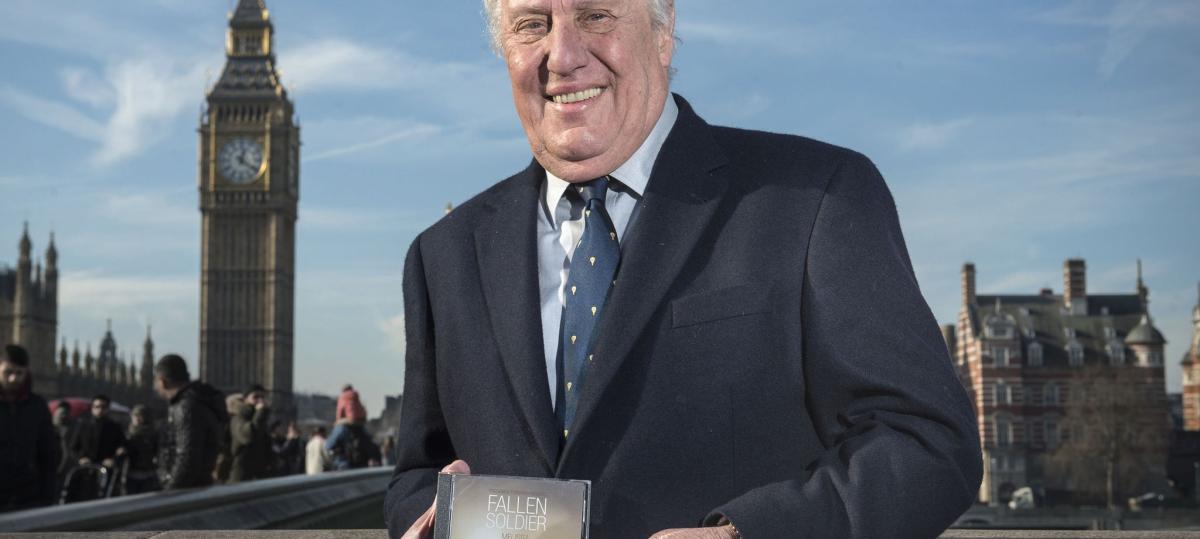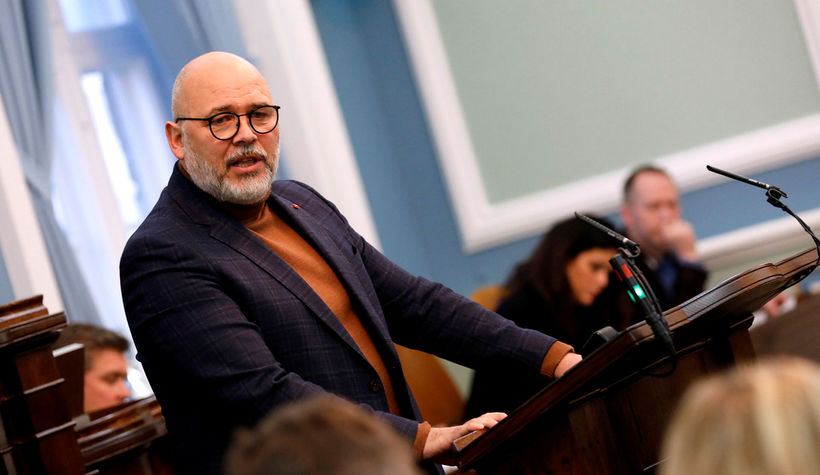The opera « Rider » is both mythical fantasy and contemporary comments

Probably it is an almost strange coincidence. While the Swedish cultural debate is pondering, which is why Finland for the eighth year in a row has been voted into the world’s happiest country, the National Opera in Helsinki sets up the 90-year-old composer Aulis Sallinen’s breakthrough opera « The rider » which was erected at Nyslott’s opera festival in 1975. War trauma that really extends all the way back to the Middle Ages.
Antti (Mika Kares) has returned changed from the war. He and his wife Anna (Miina-Liisa Värelä) have been brought as slaves to a rich merchant (Johannes Vatjus) from Novgorod, where they are exposed to a sexual power play-complete with bondage and stylized bear mask. At the same time, between the great powers Sweden and Russia, the forest state rises – thus a Finland mentioned as « the land of the happy ».
The people – embodied by The motive with the wandering forest – in turn, chooses the reluctant Antti as his leader despite being so obviously an anti -hero. The poet Paavo Haavikko’s symbolically charged libretto can be interpreted on several different levels. You can choose to see the « rider » as a jealous -driven love story in the shadow of oppression. But probably it is more attractive to consider the story as a major political power play, where morality is put to the test.
From the beginning, everything is in charred waste. The fifty shades of the video projections of noir for the thoughts of old -fashioned silent film, while a spartan stage building of thin tree trunks rises in the middle.
Director Jussi Nikkilä’s text -loyal interpretation in combination with the scenographer and costume designer Taki’s Gothically blackened framing actually has more in common with a historically colored fantasy series such as « Game of Thrones » than with any « dystopic future », which the little misleading talks about the National Opera’s website. After all, there is both mystery and a prophecy, as well as sexual violence. But above all, open and thought -provoking issues that are equally easy to apply to the contemporary.
Sallinen’s music is both Power and emotional center, constantly changing and illustrative. But at the same time traditionally anchored, accessible and singable. The sounds wander like the forest between east and west. Impressive watches and driving parties draw inspiration from the Orthodox Church, while large lyrical claims are approached Puccini or Wagner.
You also do not need to understand very much Finnish to appreciate Haavikko’s poetic text as it is carried by both the composer and the orchestra and a stable singer team under the leadership of Hannu Lintu. Not even a brief interruption due to a case of illness in the audience manages to upset the densified mood.
It is visually neat, well -sounding and above all uninterruptedly exciting in the joint between mythologically colored fairy tale and a historical reality that was rarely felt equally relevant since the performance 50 years ago.
Played until May 28. Sing in Finnish, but is also texted in Swedish and English.







